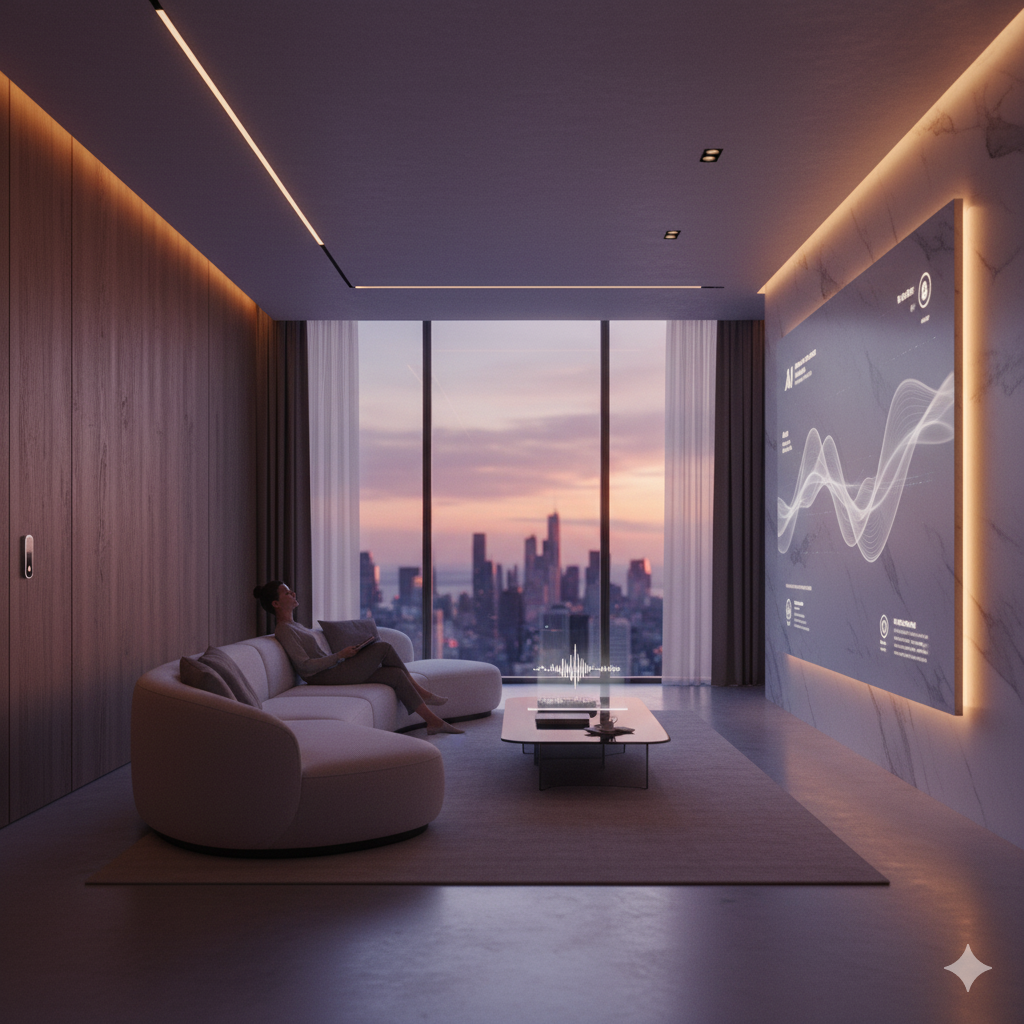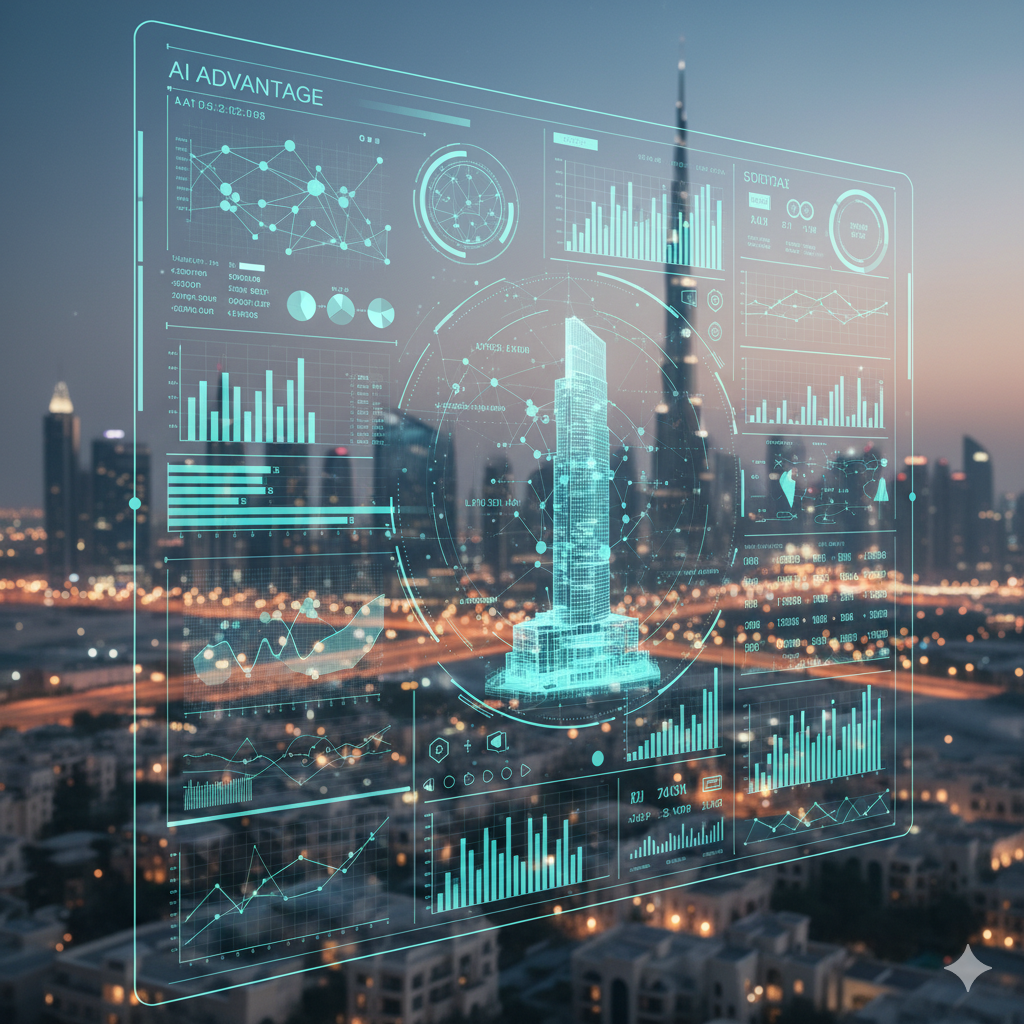The concept of luxury is evolving. It’s moving beyond ornate finishes and square footage to embrace a new, more profound standard: anticipatory intelligence. The next generation of elite residences won’t just be well-appointed; they’ll be intuitively aware, responsive, and seamlessly integrated into the lives of their owners. At the heart of this revolution is the sophisticated melding of smart home technology and advanced Artificial Intelligence (AI).
As experts in bespoke residential technology, we’ve observed this shift firsthand. This isn’t just about voice assistants playing music or turning off lights; it’s about crafting an ecosystem where the home itself acts as a discreet, personal butler, managing comfort, security, wellness, and efficiency without ever needing an explicit command. This in-depth look explores how AI is redefining opulence and what discerning owners must consider as they design the ultimate living space.
The Evolution of the Smart Home: From Automation to Anticipation
Early smart homes were defined by automation—setting a timer for the lights or scheduling the thermostat. Today’s luxury smart home is defined by anticipation, driven by robust AI.
The difference is crucial. Automation is fixed; anticipation is learned. An automated system sets the heat at 7:00 AM. An AI-driven system observes that on rainy mornings, you prefer the temperature two degrees warmer, the lighting dimmer, and a specific playlist to start quietly. It then makes those adjustments automatically, based on real-time weather data, occupancy patterns, and your historical preferences. The technology disappears, leaving only the experience of effortless comfort.
Hyper-Personalization: Your Home, Your Ecosystem
The true measure of a luxury system lies in its ability to become a hyper-personalized sanctuary. This goes far beyond shared family settings and delves into creating unique environments for every individual:
- Customized Climate & Ambiance: Advanced AI algorithms integrate data from circadian rhythm research, external light sensors, and individual health metrics (like body temperature and sleep data from wearables). Lighting adjusts its color temperature and intensity to gently wake you, support focus during the workday, and promote natural sleep cycles in the evening. The air quality system modulates ventilation, humidity, and filtration based on which family member is in the room and what activity they are engaged in (e.g., boosting air circulation during a home workout).
- A Discreet Digital Concierge: Forget generic voice commands. Tomorrow’s AI assistants are contextually aware. They manage complex multi-step processes—from coordinating with external service providers for maintenance appointments to suggesting a bespoke wine pairing for an impromptu dinner party—all without needing a prompt. They monitor your calendar, predict when you’ll arrive home, and ensure every element—from the house security being disarmed to the perfect water temperature in the shower—is ready upon your entry. This truly bespoke service elevates the AI assistant from a simple gadget to an invaluable member of the household staff.
AI as the Core of Wellness and Security
In the luxury market, time and peace of mind are the ultimate currencies. AI integration is proving transformative in both the physical and emotional security of a residence.
Predictive Maintenance: Flawless Operations
One of the most compelling, yet least visible, advancements is AI’s role in predictive maintenance. Luxury homes are complex ecosystems, and a system failure—a burst pipe, an HVAC malfunction—is more than an inconvenience; it’s a disruption to an elite lifestyle.
Intelligent systems continuously monitor the operational health of all integrated components—from appliances to electrical grids and structural integrity sensors. By analyzing minute data patterns, the AI can detect anomalies that predate a failure. For example, a small, subtle spike in a water pump’s energy draw might be flagged as a potential bearing issue weeks before the motor fails. This allows for scheduled, proactive intervention, ensuring the home remains flawless and disruption-free. This predictive capability significantly extends the lifespan of expensive, critical systems and preserves the value of the asset.
Intelligent Security Systems
The high-end security paradigm is moving past simple alarms and cameras. Modern systems use AI for sophisticated behavior-based threat detection:
- Biometric and Behavior Authentication: Access control shifts from keys and codes to facial recognition and gait analysis. The system learns the difference between a resident, a known guest, and an unknown visitor. An AI-powered camera doesn’t just record a person; it identifies a pattern of loitering or a change in routine movement, generating an alert long before a perimeter breach occurs.
- Remote Management and Integration: For owners with multiple residences or demanding travel schedules, AI unifies security management. A single, secure application allows seamless monitoring and control across properties, often syncing with the owner’s travel schedule to adjust security postures—from locking down a vacant property to putting an occupied home into a “safe” mode overnight. The responsiveness of the AI system ensures immediate and appropriate action, even from across the globe.
The Financial and Design Implications
Integrating smart technology is no longer a futuristic novelty; it’s an investment expectation. For buyers, investors, and developers, its presence significantly impacts valuation, marketability, and long-term sustainability.
Boosting Property Value and Appeal
Data consistently shows that properties equipped with cutting-edge AI and smart systems command a premium in the luxury market. These homes are considered “future-proofed” and instantly appealing to the next generation of affluent, tech-savvy buyers.
- Energy and Sustainability: AI-driven energy management systems are vital for sustainability. They optimize power consumption based on real-time usage and weather patterns, intelligently managing solar arrays, battery storage, and smart grid interaction. This not only dramatically reduces utility costs but also aligns with the growing desire among the wealthy for environmentally responsible—and demonstrably efficient—homes.
- Design Meets Functionality: The most elegant integration is invisible. Modern interior design incorporates technology as a functional element, not a conspicuous gadget. AI assists designers in optimizing layouts, calculating the most efficient placement of heating elements, and ensuring that all speakers, sensors, and cameras are discreetly woven into the architecture. The goal is a home that feels intelligent without looking like a server room. This collaboration between human architects and the analytical power of AI leads to design solutions that are both stunning and profoundly functional.
The Advisory: Navigating the Ethical Waters of AI
For all the benefits, a major consideration—perhaps the most critical—is the ethical responsibility that comes with collecting and processing the vast amounts of personal data needed to fuel these sophisticated AI systems. A home that anticipates your every need must first learn everything about you.
Privacy and Data Sovereignty
Your smart home is an unprecedented observer of your life: your schedule, your health metrics, your social life, your habits, and your vulnerabilities. This data is the lifeblood of the AI assistant.
- The Sanctuary of the Home: Luxury owners must insist on data sovereignty. This means having clear, contractual control over who owns the data collected, how it is stored, and, critically, that it is never monetized or shared with third parties without explicit, granular consent. The systems should prioritize on-premise hosting and processing, minimizing reliance on cloud services to keep sensitive data within the physical confines of the property.
- Transparency and Security: Demand complete transparency from your integrators and developers. You must understand the data flow, the encryption methods used, and the security protocols against cyber threats. Treat your smart home network with the same rigor as your private financial infrastructure. Regular, comprehensive security audits of your AI system are non-negotiable.
The Human Element
Ultimately, AI is a tool, not a master. The future of luxury living is defined not by the technology itself, but by the quality of the human-AI collaboration.
The best systems are bespoke, designed and continuously refined by human experts—integrators, architects, and designers—who work to translate personal lifestyle philosophies into functional digital ecosystems. The sophisticated AI learns your patterns, but your personal technician remains the one who ensures that the learning is safe, accurate, and aligned with your values.
Final Counsel
The integration of smart technology and AI is no longer a trend; it is the new foundation of high-end residential design and investment. It represents the pinnacle of convenience, security, and sustainable operation.
For those planning a new build or a major renovation, our advice is clear: view the technological infrastructure as integral as the foundation and the structure. Engage your technology consultant early, alongside your architect, to ensure a unified vision. Prioritize systems that offer true data privacy and customization. By doing so, you will not only be investing in a residence of superior efficiency and value but in an environment that grants the greatest luxury of all: the complete freedom to simply live.
Moses Oyong is a luxury real estate advisor with a passion for arts and culture, music, fashion, and all things luxurious. With a keen eye for beauty and attention to detail. I strive to help my clients find their dream homes that reflect their unique sense of style and taste whilst providing them with the right information to ease the stress of the decision-making process.




